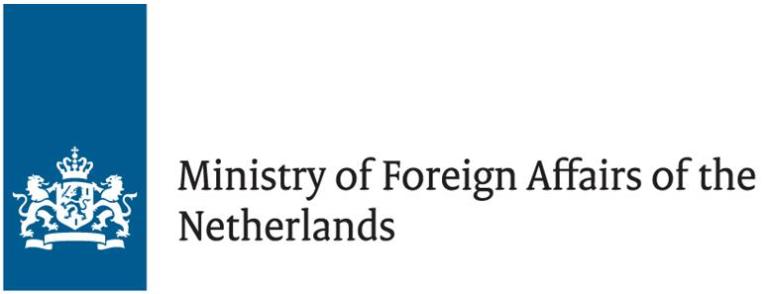Cultural Heritage Scholarship Programme
Application closed
The Cultural Heritage Scholarship programme is a one-year programme for the academic year 2024-2025. It is no longer possible to apply for a scholarship. For alternative scholarships, please visit the StudyFinder.
This programme offers students and young professionals from Indonesia, Nigeria, South Africa, Sri Lanka and Suriname the opportunity to follow a one-year master’s programme in the Netherlands related to their cultural heritage, specifically related to objects stolen during the Dutch colonial era. The programme offered 21 scholarships to students from participating countries for one-year master’s programmes in the Netherlands, starting in September 2024.
Countries
Students and professionals are eligible for a Cultural Heritage Scholarship if they specialise in or study heritage, art art history, history or museum studies and are a national citizen of:
- Indonesia (Indonesian citizens can now also apply for the general CHSP scholarship, without LPDP funding)
- Nigeria
- Sri Lanka
- Suriname
- South Africa
About the programme
The Cultural Heritage Scholarship Programme is funded by the Ministry of Foreign Affairs and managed by Nuffic, aligning with Dutch policy based on the Advice on Colonial Collections and Recognition of Injustice from the Gonçalves Commission. Because of the imbalance of power during the colonial era, cultural objects were often improperly obtained. The Dutch government is keen to help rectify this historic injustice by returning cultural heritage objects to their country of origin and by strengthening international cooperation in this area. This initiative is in line with other efforts within this policy framework, such as the Colonial Collections Consortium and opportunities offered by the Netherlands Organization for Scientific Research (NWO). Both are currently offering research opportunities in the Netherlands on this topic: NWO call for proposals and the NIAS–NIOD–KITLV Fellowship.
Target group
This programme offers opportunities for motivated and highly committed younger (20-35) students and professionals to develop their knowledge of the international museum and heritage field, provenance research and the role of heritage in our society. After gaining new knowledge and skills, scholarship recipients must contribute to the museum and heritage field in their country for example by conceptualising exhibitions, conducting provenance research or supporting requests for return of objects currently in Dutch museums.
Eligibility criteria
To be eligible the applicants have met the following criteria:
1. Possess the required nationality and live and/or work in the respective countries.
2. Were not older than 35 at the time of submitting the application.
3. Hold (at least) a bachelor degree in one of the following fields of study: Art history, heritage studies, museum studies, history, archaeology, or a related field.
4. The master’s programme for which the student / professional has applied to was on the Programme Course list and is a full-time study during the academic year 2024-2025. The programme starts around 1 September 2024 and ends in September 2025 at the latest.
5. Were academically admitted to one of the programmes on the course list.
6. Submitted the belowmentioned required documents.
Required documents
- a copy of a valid identification document.
- a motivation letter.
- a recent Curriculum Vitae (CV).
- 2 reference letters by professionals in the history, museum, art history, archeology or heritage sector or from teachers/professors preferably in one aforementioned field.
- A certified copy of your highest obtained diploma and transcript or if not yet available a recent copy of the transcript.
- ideally (un)conditional letter of admission, but at least a confirmation of your application for academic admission for the programme(s) for which you submit the scholarship application.
- a form of the obligations and conditions (166.6 kB), signed by the applicant and a participating institution (a format will be released shortly). This document contains rules and regulations for the scholarship. By signing and submitting the format, you and the Dutch institution agree to these.
Programme course list
| Name institution | Name master's degree programme |
|---|---|
| Leiden University |
|
| Maastricht University | |
| Reinwardt Academy (Amsterdam University of the Arts) |
|
| University of Groningen |
|
| Vrije Universiteit Amsterdam (VU) |
Scholarship holders are expected to select courses relevant to the purpose of the programme and to seize the opportunity to use their thesis research or internships, where relevant, to research topics relevant to the programme's goals.
Reporting
Within 4 weeks after the end of the study programme, scholarship holders must submit a (short) narrative report and a copy of their diploma. Dutch institutions must provide a financial statement according to the provided format.
Code of Conduct
Nuffic or programmes that Nuffic manages may not be involved in activities that involve unacceptable behavior, whether interpersonal violations, financial violations or abuse of power. Nuffic has an Integrity Code of Conduct to combat unacceptable behavior. In addition, activities involving the following situations/behavior are considered unacceptable:
- bankruptcy, insolvency or liquidation proceedings;
- failure to comply with obligations to pay taxes or social security contributions;
- money laundering or financing terrorism;
- terrorist crimes or crimes related to terrorist activities;
- irregularities;
- setting up a shell company; be a shell company.
Those who receive a grant through a program managed by Nuffic are expected to endorse and comply with this code of conduct.
Read our integrity policy.
More information
For more information about the Cultural Heritage Scholarship Programme, please contact chs@nuffic.nl.
